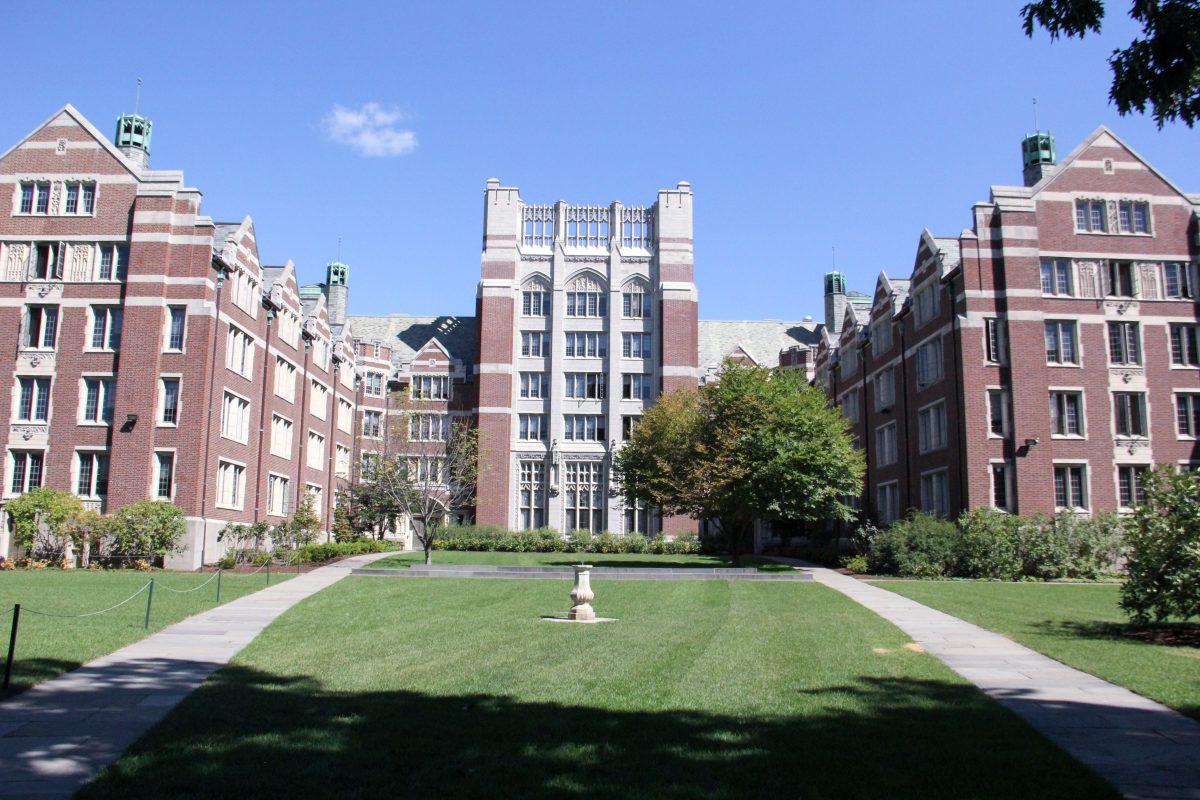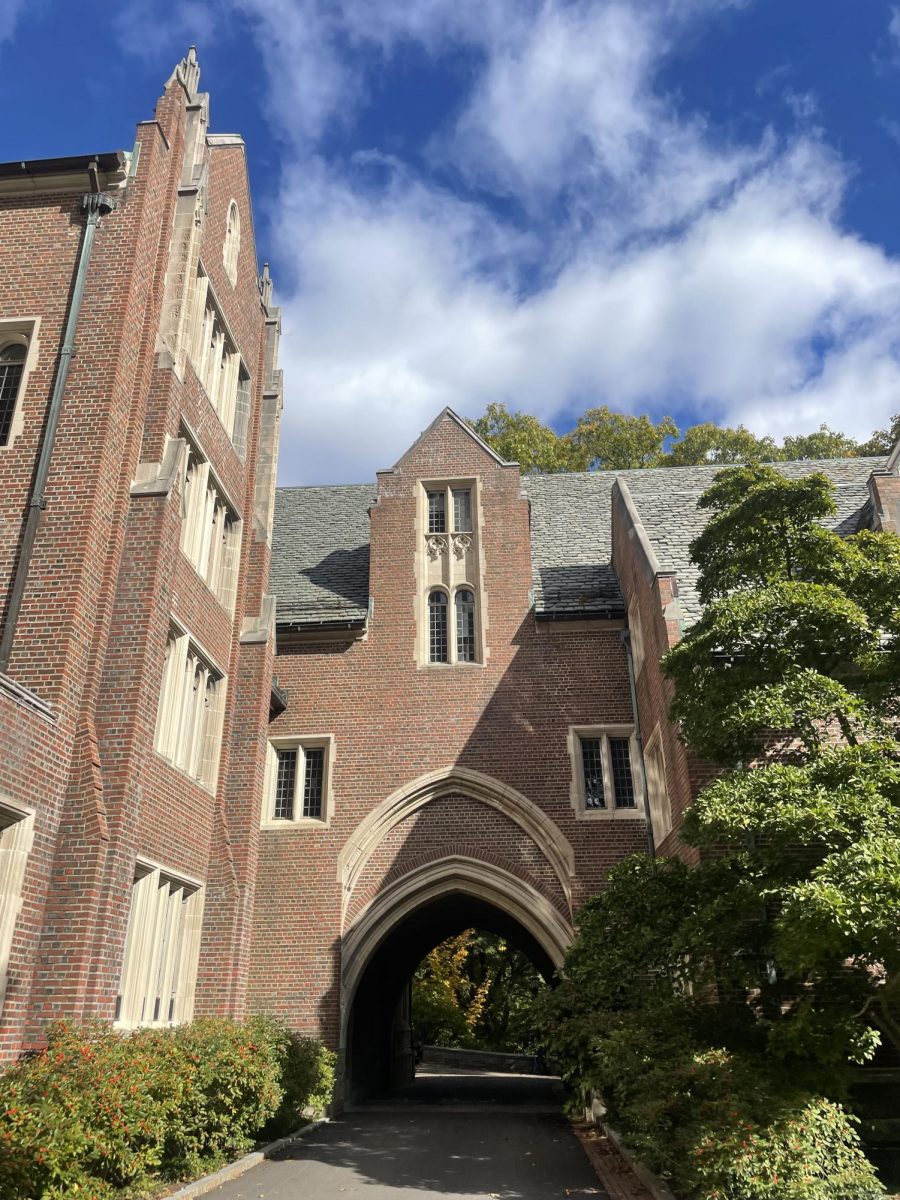Shortly before midnight on Monday, Oct. 30, a small fire broke out in a student’s room on the fifth floor of Tower Court West. Wellesley Fire Rescue responded to the scene, dispatching two fire engines to the building. Wellesley College Police also responded. Assistant Fire Chief Jeffrey Peterson said that the fire department was immediately notified when fire alarms were triggered in the building. Tower’s fire sprinkler system was engaged automatically, and the fire was extinguished before first responders entered the affected room. According to a statement released by Sheilah Horton, vice president of the college and dean of students, the fire occurred after a student burned incense in their fifth-floor room and improperly disposed of it. While damage from the flames was limited to one room, in total, 11 rooms were affected by varying degrees of smoke and water damage.
Tower Court residents who evacuated the building late Monday evening were directed to nearby Lake House to await permission to re-enter their dormitory. Approximately an hour after the initial alarm, students were allowed to return to their rooms. Jessica Schuyler ’18, who lives adjacent to the room in which the fire occurred, reported flooding across the entire landing. Victoria Condon ’19 lives on the fourth floor of Tower Court West and said that her room was affected by water that entered from flooded areas on her own floor as well as from leaks in the ceiling above. Condon stated that the leaks harmed belongings in her room, most significantly her bedding and mattress, which were soaked. While Condon lives nearby and was able to return home for the night, other affected students were forced to look elsewhere for temporary relocation.
Meghan Todd, assistant director of student housing, explained that students who were unable to return to their rooms because of damage were provided with a list of vacancies in residence halls across campus. Most students, Todd noted, chose to stay with friends who offered lodging in light of the incident. The following day, Todd and Sarah Cooper, Tower Court’s area coordinator, invited residents to a meeting during which students were given information about temporary relocation arrangements. In addition to Residential Life staff, Dean Horton noted, representatives from Counseling Services were also present at the Tuesday meeting to offer support to students.
Director of Environmental Health and Safety Suzanne Howard said repairs will largely consist of cleaning surfaces, replacing carpet and painting and repairing walls impacted by the water. The projected timeline for the work is six to eight weeks. Condon, who said her room sustained water damage, expressed satisfaction with the College’s efforts. “Maintenance did a great job cleaning my room. It’s dried out and no longer smells like smoke. I still have the dehumidifier and a fan in my room to complete the drying process,” she said.
Other students, like Tower resident Juniper Ozbolt ’21, were disappointed in the school’s response. Though not directly affected by the incident, Ozbolt felt that the school did too little to share information about the fire with the wider community following the incident. “Faculty, staff, and peers did not know the fire occurred for days after it happened. How are we supposed to support each other as a community if we do not know what is happening in our community,” Ozbolt said.
Another common concern among students who were impacted by the fire regarded damage to personal belongings. Horton explained that the College’s official policy is to direct students to consult their own homeowners or renters insurance, which she noted was a common practice among colleges and universities. She added, “we also recognize that not everyone has homeowners insurance and some who do have large deductibles, so we are trying to work on our own insurance to cover the damage.” Horton said the College is still in the process of working with its insurers and will notify students when more information becomes available.
Some, however, are concerned of the greater implications of the incident to students’ health. On the morning of Nov. 6, Julide Iye ’18 emailed an open letter to students and administrators expressing concern that some Tower residents may be experiencing health issues related to the smoke and water damage that affected the fourth and fifth floors of the building. The relationship between the symptoms reported by students (including sore throat, coughing and fatigue) with the fire is yet to be determined. According to Horton, the office of Environmental Health and Safety has been continuously monitoring the building to ensure it remains a healthy environment for the students continuing to live on the affected floors. “The building is absolutely safe to our knowledge,” she added. Horton is meeting with representatives of Health Services, EHS and other departments to address these ongoing health concerns.
Though damage to rooms and belongings was sustained, no injuries occurred as a result of the fire. Assistant Fire Chief commended residents for leaving the building promptly in response to the fire alarms, noting the high “life safety risk” posed by the age and size of the building. He credits the direct notification system and the success of the fire sprinklers in minimizing the extent of the damage. Dean Horton wanted to emphasize the importance of seeking support for those affected by the fire. “It’s just such a shock to your system. Students need to take care of themselves and if they’re feeling stressed, and they should reach out to the Dean of Students, or Counseling Services,” she said.






